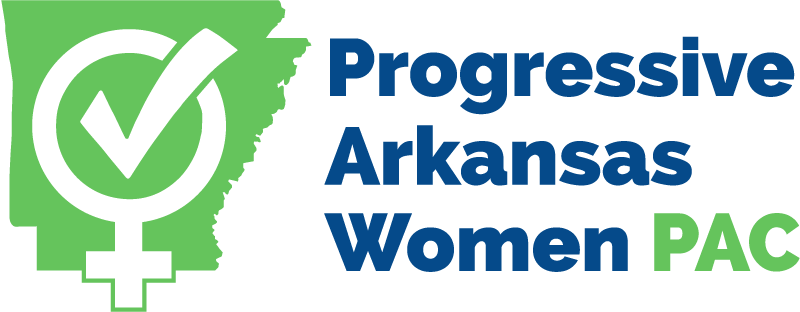Here’s the situation: You’re a woman. A resident of Arkansas. You are aware of the political situation here (where legislators spend their time banning the hypothetical compulsory implanting of microchips into non-consenting workers-whew! that’s a load off my mind), and don’t like what you see. You believe you can do better, that you can improve the lives of people in your state, and you have the drive and commitment to take on such a challenge.
To that end, you want to run for public office. Sounds like a long, lonely journey. If you have no experience in politics, where do you start?
Help can be found via Progressive Arkansas Women. It’s a political action committee focused on increasing the number of progressive women in elected office in Arkansas.
Organized in June 2016 by civil rights lawyer Bettina Brownstein, womens-issues activist Katherine West, and former policy director for Planned Parenthood Murry Newbern, the PAC’s mission is to identify and support women who are committed to reproductive freedom, women’s economic and social equality and dedicated to working against self-serving laws.
“It was a tough time,” says Katherine West of 2016. “Politics was in turmoil. To us, getting more women elected was an obvious answer to how to improve politics and government. Bettina Brownstein and I are neighbors with our homes sharing an alley. Murry lives close by. Bettina was insistent that women had to support women willing to run for office, and I couldn’t get away from Bettina without moving, so by June we corralled a group of women activists to form Progressive Arkansas Women PAC.”
The PAC, says Brownstein, “was basically born in a back alley.”
Some of those corralled activists had historic ties to the 1957 Women’s Emergency Committee and Jean Gordon though their work with Gordon, founder in 1997 of Arkansas WAND (Women’s Action for New Directions). “Our PAC could be viewed as a continuation of work begun by the Women’s Emergency Committee-work to bring women into the decision-making power structures in the state,” Newbern says.
“In our recruitment efforts, we ask direct questions about their commitments to these goals,” Brownstein says. “A PAWPAC member interviews a potential candidate and asks what she is doing to support women and the issues important to us; for instance, the right to control our bodies, gun regulation, alternatives to incarceration, health care for all. We ask what they are doing in the community. We talk with progressive activists and political leaders in her community to ascertain her leadership abilities.”
“We have had no problem finding progressive women who want to get involved but who don’t know from where or how to get support, financial or otherwise. We endorse women whom we believe to be viable candidates.”
Among the PAC’s goals is providing that support. As part of getting more women elected, “we felt we had to raise money to support their campaigns,” Newbern says. “We knew that women had a much tougher time raising money than men. We are one of the largest financial contributors to women candidates in the state.”
In 2018, PAW contributed more than $60,000 to 55 candidates.
“Now, there are more women supporting women candidates, and they are contributing money to their campaigns,” West says. “That has been very powerful. We believe that a PAWPAC endorsement gives a woman the status she needs to be a credible candidate.”
A visit to the PAC’s website reveals practical aids for women who want to run, such as a blog by PAC member Holly Payne and her sister Andy Pratt that offers Managing Market, a podcast series with advice on which social media channels are most effective.
There’s also an online campaign training workshop titled AR You Ready to Run, a comprehensive tool that is helpful to even the least politically savvy among us.
Its simple step-by-step presentation begins with an outline of how to determine motivation and describes the characteristics of good candidates. Next comes basics of preparation: Creating an effective stump speech, developing personal networks, studying leadership skills such as community building, social/verbal/writing and visionary competence.
The importance of motivational, analytical, conflict resolution, negotiation, research and info gathering competence is clarified, along with bootson-the-ground prowess such as how to run a meeting, how to build a base, and ways to seek and identify mentors.
This is a place to learn how to overcome barriers. But the organization’s primary function is to raise money for candidates.
Resistance to PAWPAC, the founders agree, “has been from men currently in charge of this state’s political system. They seem to have difficulty accepting that PAWPAC exclusively supports women. To overcome this resistance, we try to explain that this is our PAC’s focus and mission.”
Effectiveness is determined by the number of women running for office, West says. “We support women at all levels-local, regional and state. Our goal is clear: By 2026 we want 50 percent of the Arkansas Legislature to be women. It will take commitment and hard work, which is where women excel.”
In the future, its founders agree that PAWPAC will be part of a larger, powerful movement in this state filled with money and people and in which women have achieved parity in governing. So that one day, there will be no need for PAWPAC.
Sooner than later, they’re hoping.
